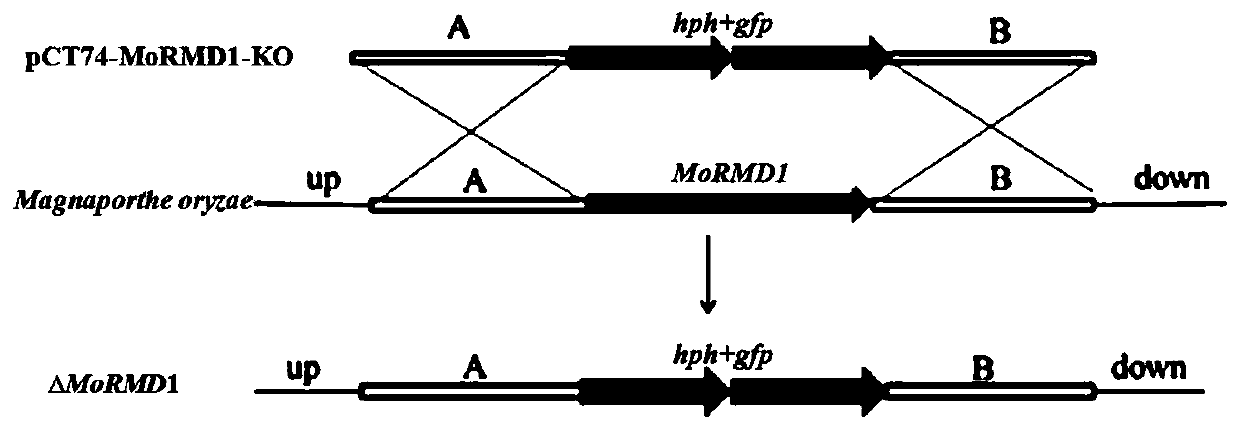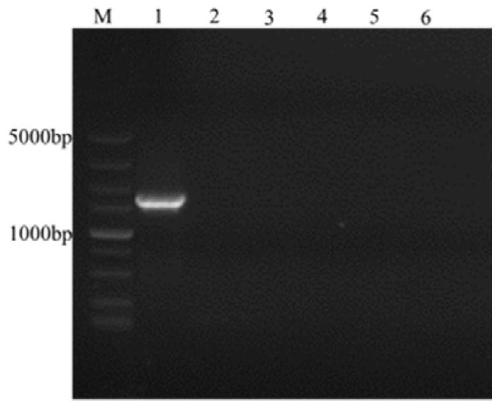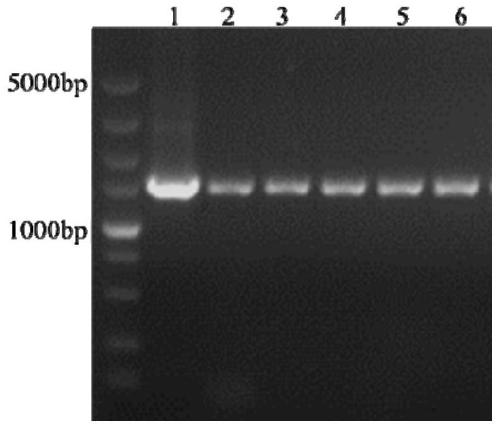Application of magnaporthe oryzae gene MoRMD1 in regulating and controlling magnaporthe oryzae pathogenicity
A rice blast fungus and virulence technology, applied in application, genetic engineering, plant genetic improvement and other directions, can solve problems such as unknown function
- Summary
- Abstract
- Description
- Claims
- Application Information
AI Technical Summary
Problems solved by technology
Method used
Image
Examples
Embodiment 1
[0037] 1. Experimental materials
[0038] 1.1 Tested strains and plants
[0039] Magnaporthe oryzae race is the dominant race ZC in Guangdong Province 13 , the tested rice was indica rice line CO39 (without known blast resistance gene).
[0040] 1.2 Host bacteria and plasmid vector
[0041] The cloning vector is pMD18-T vector, and the gene knockout vector is the filamentous fungal expression vector pCT74.
[0042] 2. Experimental method
[0043] 2.1 Construction of Magnaporthe grisea knockout vector
[0044] Schematic diagram of the construction of blast fungus MoRMD1 gene knockout vector figure 1 shown. Sequences with a length of about 1500 bp were selected at the upstream and downstream of the MoRMD1 gene, and primers were designed (Table 1).
[0045] Table 1 Amplification primers for homology arm A fragment and homology arm B fragment of Magnaporthe grisea MoRMD1 gene
[0046] Primer name Primer sequence 5'-3' Restriction sites MoRMD1-AF GG GG...
PUM
 Login to View More
Login to View More Abstract
Description
Claims
Application Information
 Login to View More
Login to View More - R&D
- Intellectual Property
- Life Sciences
- Materials
- Tech Scout
- Unparalleled Data Quality
- Higher Quality Content
- 60% Fewer Hallucinations
Browse by: Latest US Patents, China's latest patents, Technical Efficacy Thesaurus, Application Domain, Technology Topic, Popular Technical Reports.
© 2025 PatSnap. All rights reserved.Legal|Privacy policy|Modern Slavery Act Transparency Statement|Sitemap|About US| Contact US: help@patsnap.com



